If you love music, entertainment and playing instruments in Kenya, chances are very high that you have heard of, seen or interacted with the famous Kamata Music School.
Kamata Music School, which has grown to be one of the top schools for training in musical instruments as well as how to navigate the entertainment industry, is owned and operated by insurance and music aficionado Kamata Rock.
Swala Nyeti had the opportunity to have sit-down with Kamata Rock to learn a thing or two about what drives him and what it actually takes to run a successful music school worth tens of millions of shillings in the Kenyan capital city-Nairobi.
Who is Kamata Rock and what does he do for a living?
I am businessman. I run an entertainment school – Kamata Music School, and also do a lot of businesses. I also sell insurance; medical insurance, education covers, and vehicle insurance.
What is the history behind the name Kamata Rock?
Kamata Rock… that’s an interesting name that’s on Facebook. Joseph Kamata is my real name. Rock is a genre of music I loved and used to listen to while in campus. At about that time, while creating my Facebook account I added Rock.
What did you study in university and how relevant is it to your current business?
I was in U.O.N. and studied Economics and Sociology. Today I teach entertainment economics at my school. Economics is a very relevant subject. We all operate in an economy and it’s important to understand it. Sociology, equally much. We live with people. The more you understand people, the better you’ll serve them.
Where and when did you love affair with music start?
Far as I can remember, I loved music since childhood. I enjoyed a wide range of music. I also sung in church. I found music COOL, as a kid, being musical was cool and I wanted to be cool.
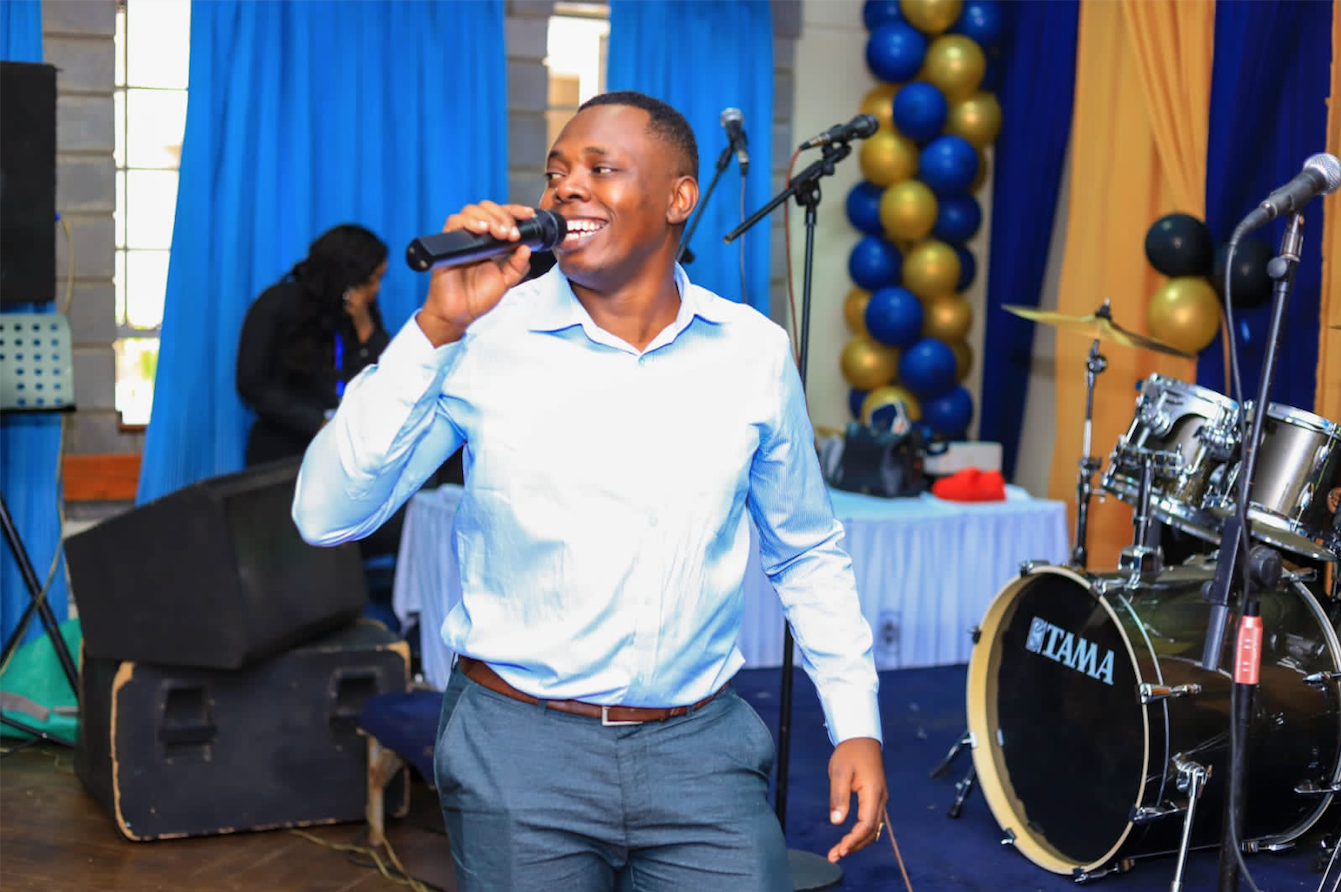
Tell us the story of Kamata Music School and how you started the business?
While at the university I learnt how to play the Guitar. I had previously, while in high school, been taken to a music school to learn Piano. I started by sticking posters around the university and at home. I got my early students through posters on electricity posts. Eventually, I got employed and was able to raise capital to rent a small space and the school begun to gain shape.
When did you start the school and what’s your approximate turnover per month/year?
I established Kamata Music School in 2009 as a tiny startup. I have invested tens of millions of shillings into it and rake in millions monthly, but remember monthly expenses are also high.
How many students do you host currently and what are some of your most popular classes at your Queensway House school?
We register about 300 to 400 students at the school annually and among the courses we offer, Music Production, Photography and Videography, DJ, Piano and Voice Lessons are the most popular.
Which are some of the big names and brands you have worked with since establishing the school?
We've done some music with King Kaka, Jimmy Gait, Ben Githae, Ken Wa Maria, Steve Rogers, Jemimah Thiongo, Kymo Thiitima, Samawati Band, Teacher Beatrice and very many others.
You have a background in insurance, why did you opt for a music business?
I Loved Music. But I was lucky to have been employed by an insurance company immediately I left campus. I learnt a lot while employed. Of how to run a business. I now sell insurance, having left employment.
What are the key, life-changing lessons running Kamata Music has taught you?
Don’t be too worried. God knows you’re there. The future could be much better than you worry. Seek knowledge. We know very little. What we don’t know far outweighs what we do.
Appreciate people. I’ve served clients from nearly all communities in Kenya, and clients from many nations. Spanning from USA, Australia, China, Europe and many African Countries. I thank God for each and every client. My business wouldn’t exist without them.
What does one require to run a music school effectively and profitably?
Clients. You need clients. And you need is clients. The rest is details. But a client is the lifeline and lifeblood of business so you must find them, treat them well and manage to keep them.
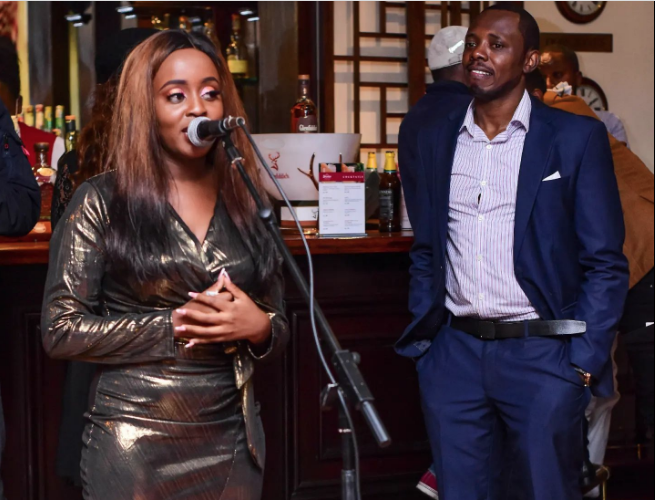
What have you learnt from your students and your employees so far?
I receive a very wide range of clients; politicians, doctors, contractors, businessmen, civil servants and retirees who enjoy music. I also serve a lot of young people. Some of my clients have been challenged in different ways – academically, or suffered social setbacks. I’ve learnt to appreciate all people; rich and poor. Socially elevated or not; They’re all my clients.
Employees help you build a business. I appreciate my employees. The highest number I’ve ever maintained was 26 employees. I know they have their dreams. I pray that I’ll be an instrument to help them achieve their dreams, as they help me achieve mine. In economics, we say resources are limited but wants are unlimited. That’s just the nature of Planet Earth. We may not have everything, so let’s manage the limited resources in the best possible way.
You once had other branches outside the CBD, what advised their closure and consolidation?
I relocated from Meru, and closed the branch that I personally run. CBD worked well for my clients since they could access us from any direction in Nairobi. Also, clients from other countries and counties easily access hostels.
I often contemplate adding more branches. But being an economic decision, many factors must come into play. I just might.
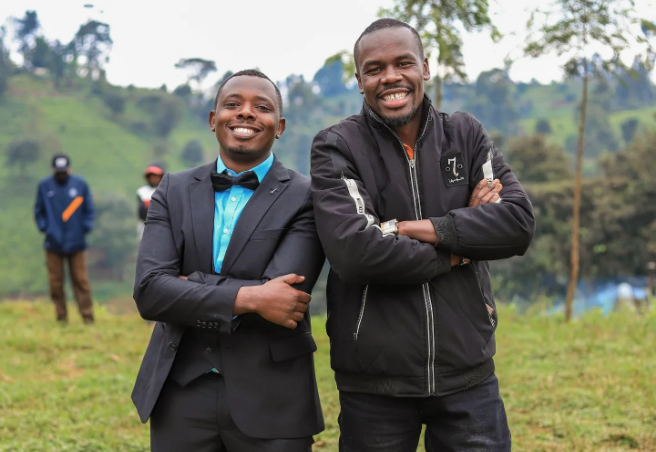
You are very close to your parents, any lessons from them that you apply in your business?
Our family culture is rich. We love each other and look out for one another. That’s how we were raised. We meet every other month just to have a good time. I think every parent should create a healthy family culture for their kids. They’ll keep it even when grown.
Who is your inspiration, both in your personal and business lives?
I’m inspired by many people. I have interacted with many people who were quite inspiring. But I’ve also observed, people have their own personal challenges. Inspiration only goes to the extent of the strength. It therefore follows, people you do not know personally, are more inspiring. The one’s we know, we’ve seen their weaknesses too.
A modern American Philosopher Jim Rohn who died in 2009, I found him very inspiring. More than any other writer or speaker I’ve studied. I also found Peter Nduati quite an inspiration, he is my former boss.

What are your most significant projections for Kamata Music 5-10 years into the future?
I wish to have meaningful impact on my students, especially those that wish to make Entertainment and Media their career. I hope to see my students make a fortune, get rich, doing music and entertainment. That will be incredibly fulfilling. It has happened and I want more of success stories from Kamata School.
I also wish to expand our services; to become an icon of quality entertainment training in Africa.

How do you balance between your personal and professional lives? What do you do to unwind?
Invite me for something, I’m very likely to show up. Life is an experience, showing up for social, corporate, or family matters is great. And enjoyable. I also take my wife out for movies quite a lot. And take family out every Sunday.
With your experience, what’s your advice to anyone seeking to venture into the music business?
Start and get busy. Activity is the name of the game. Creativity, activity, and well-disciplined culture of work. Learn, Do! Learn, Do! And keep going! You will succeed.

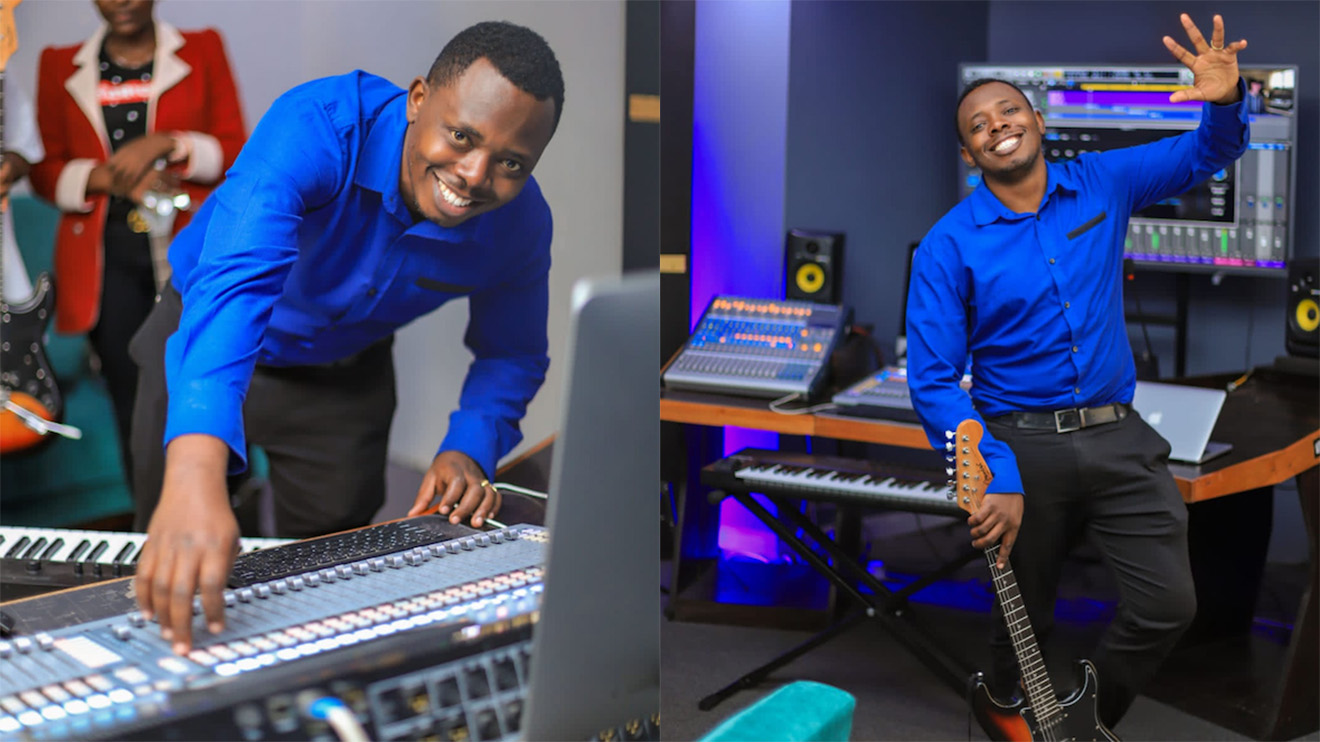
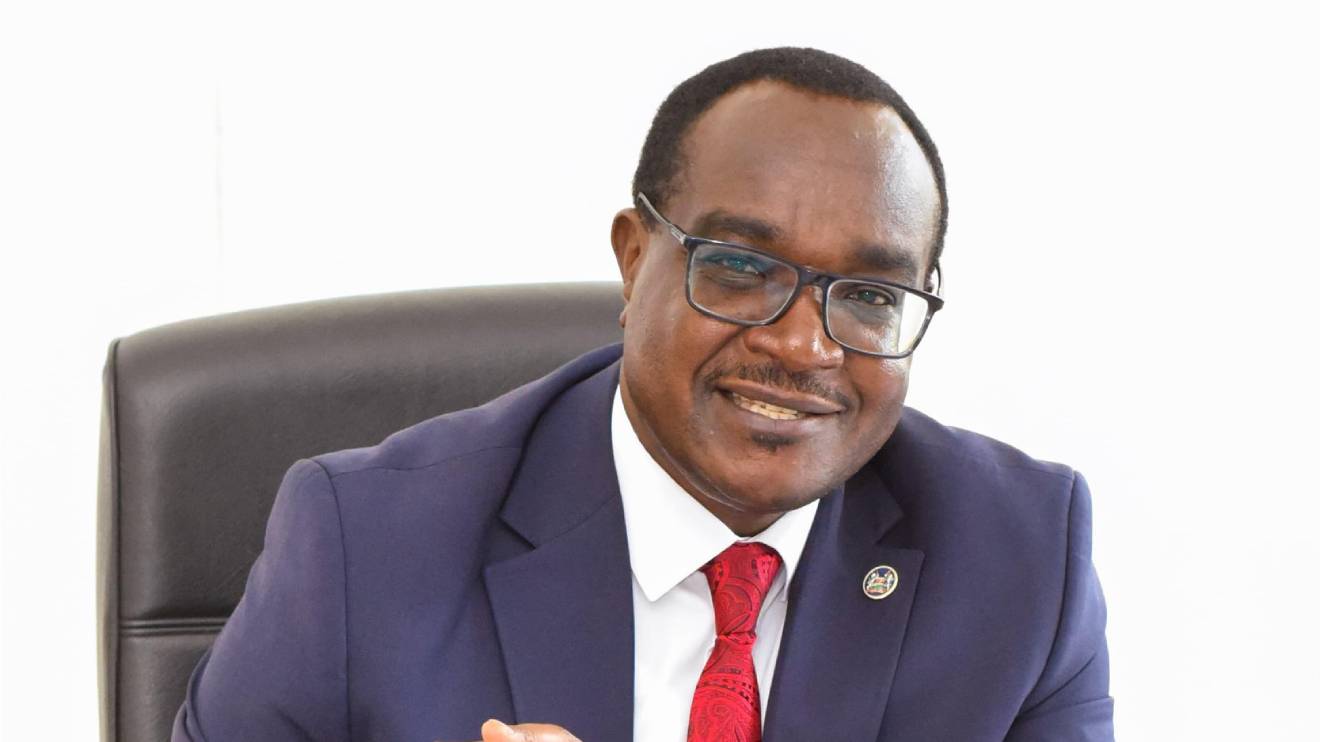
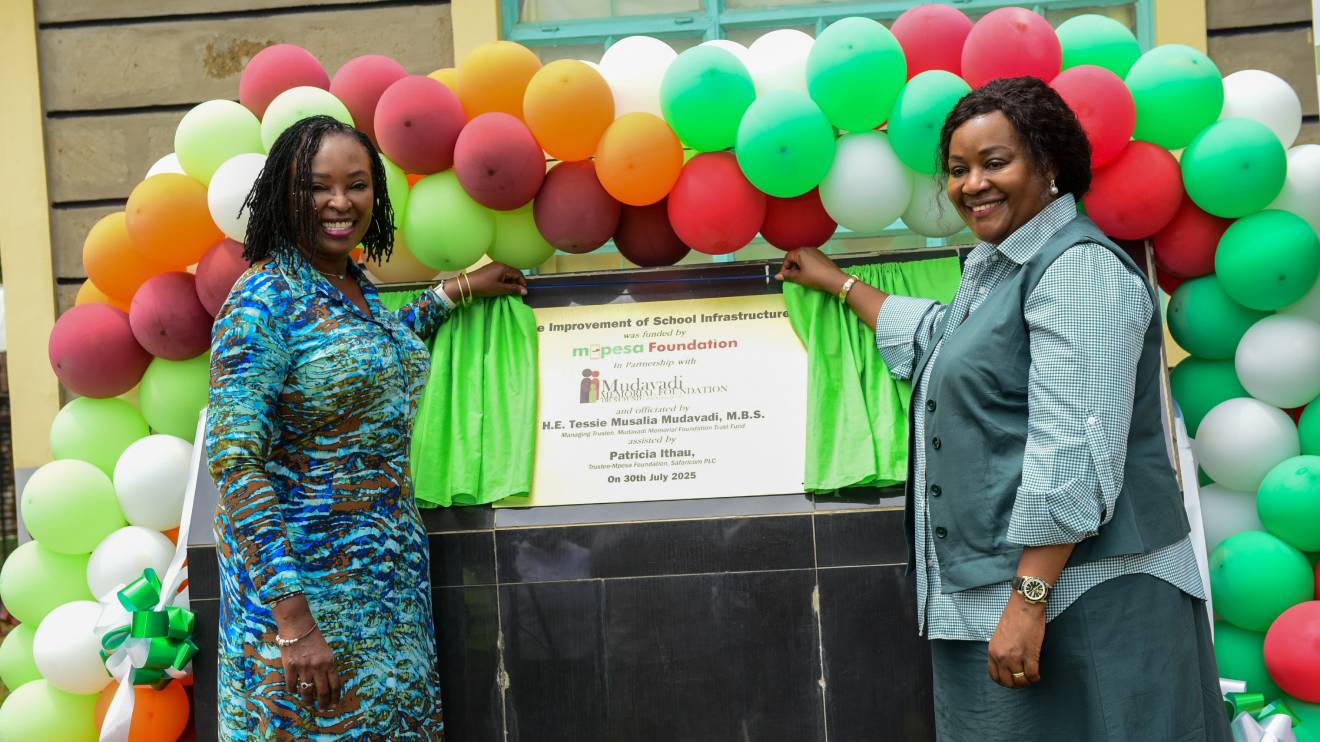
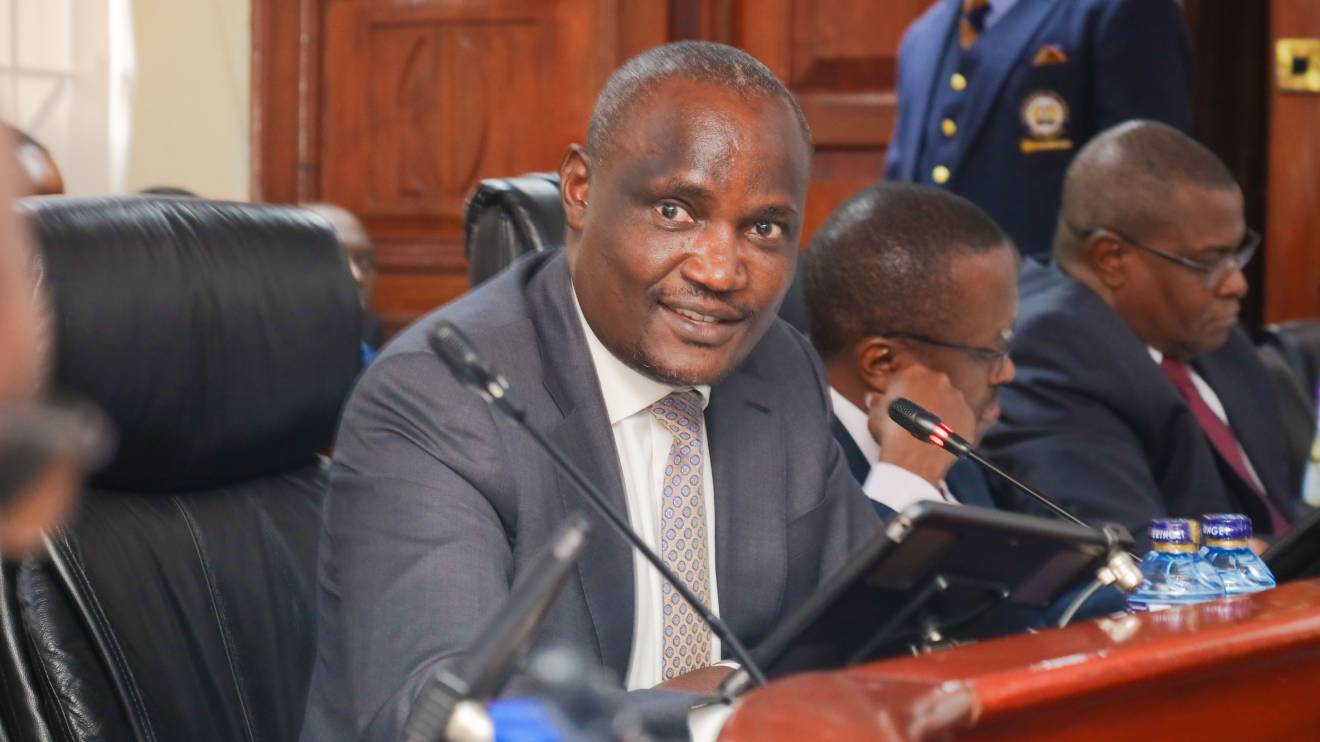

-1752797011.jpeg)

 shares a light moment with the company's Group CEO Dr Patrick Tumbo (right) at a past event-1758121528.jpeg)
-1758116028.jpeg)

